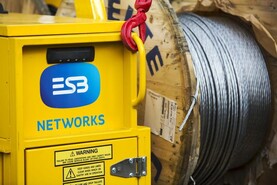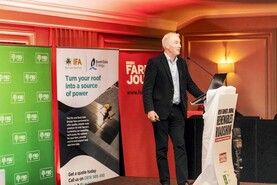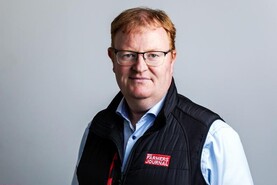On Tuesday evening, over 400 people attended the first meeting in our Renewables Roadshow series in Cork.
For once in the last six weeks, the sun was shining, giving a rare opportunity for farmers to do something without rain, but yet a huge crowd turned up.
It is testament to the appetite from farmers to invest and change, reduce carbon emissions, and attempt to reduce costs on farms.
Our renewables editor Stephen Robb led the discussion on the night around some of the changing technologies that are happening on Irish family farms and rural households.
On the night, he clearly showed real case studies that highlight a payback period of less than five years for solar PV installations.
Last week, I attended a long standing commitment in Dingle, hosted by farmers and management of the Dingle Hub.
In particular, a group of west Kerry farmers explained how they had come together as a community to research and invest in energy.
The concept is novel, highly interesting, hugely worthwhile and the results already in Dingle show the benefit of farmers working together in this space.
Working together
The principle behind the Dingle work is that farmers get good results when they work together. When they work as a group, they can afford to pay for professional expertise, so they don’t need to know it all themselves.
In addition, when investing as a group in the likes of solar PV panels, they have more purchasing power. The Dingle Hub has already taken the foundation work by the farmers to the next step, and has brought local businesses such as hotels, restaurants and those providing services to the tourism sector on the same energy journey.
The Dingle grouping followed the ‘learn’, ‘plan’, and ‘do’ model when working with renewables. Our expert speakers on Tuesday night also extolled the benefits of this.
There is little point in installing a suite of solar PV panels on a house if all you are doing is warming the crows sitting on top of the roof outside. Maybe a better first step on the investment journey for you is insulating walls or renovating windows in your house.
Starting off
So as a starting exercise, you need to learn when exactly you are using energy on your farm and in your house. You need to know the quantity of energy and alternative energy options available to you in your local area.
ADVERTISEMENTEssentially, what these farmers and households are trying to do is reduce the amount of fossil fuel usage on farms. So the farmers in Kerry were capturing heat from compressors to heat hot water that could be used in the house or to wash the milking parlour.
On drystock farms, they were creating energy from solar PV that could be stored in batteries for later use in the house, or to replace purchased energy.
All the farms in Kerry and all those farmers and rural house owners that attended our night in Cork were effectively reducing or attempting to reduce the tonnes of carbon dioxide generated from the farm – a hugely positive step.
We’ve said it here before, but we’ll say it again; the farm doesn’t get the benefit of the carbon reductions, the energy sector gets to count the savings.
So we have farmers and rural households investing to reduce emissions and getting no benefit from a national perspective in the fight to reduce emissions.
In the same way a farm business, where mainly a short-lived gas (methane) is the challenge, has to accept policy and support reductions, and limits on what that farm business can do – it’s nonsensical.
ADVERTISEMENTSolution
The solution is to allow the emissions reductions (often fossil fuel derived emissions) be discounted from total farm emissions. This would encourage further change and importantly, promote a viable energy and business transition on family farms and businesses.
Let’s be clear, often given the nature and history of Irish farm businesses and rural households it is some of the other agri sectors – the sucklers, tillage, sheep or the dairy sectors that make the news.
However, in today’s new and changing world, where input costs are hugely important, often it is this renewable sector in its widest sense that can have a bigger impact on your business.
It is a growing sector, it is a sector the Government says they want to support and they are in some parts, as highlighted by the discussions in Cork. At the very least it is a sector that can reduce costs and, depending on the technology, increase revenue at farm level in light of restrictions in other sectors.
Next week the Renewable Roadshow continues and we are in the Newpark Hotel in Kilkenny (Tuesday 16 April), followed by the Errigal Hotel in Cootehill, Co Cavan (Tuesday 23 April), and finally concluding on Tuesday 30 April in the Athlone Springs Hotel. Register to attend at ifj.ie/renewables
See you there.






 This is a subscriber-only article
This is a subscriber-only article










SHARING OPTIONS: